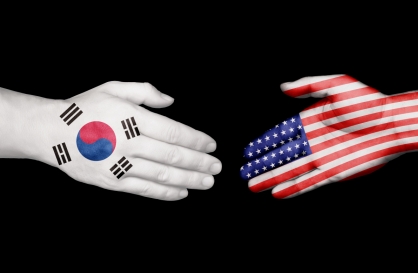[Editorial] Compensate leprosy victims
Legislation of special act necessary
By Korea HeraldPublished : May 8, 2014 - 20:54
It is good news that a district court ordered the government to compensate victims of discriminatory policies against leprosy patients. The first of its kind in the country, the ruling should pave the way for wider, systematic compensation for the discrimination and hardship they endured.
The ruling made by a court in Suncheon, South Jeolla Province, last week called on the government to pay 30 million won in compensation to each of the leprosy patients who had been forced into sterilization. Those who went through forced abortions will get 40 million won each.
The landmark suit, filed by a group of 19 plaintiffs, is the first of four similar lawsuits that involve a total of 651 patients of leprosy, also called Hansen’s disease. The plaintiffs were all interned at a leprosarium on Sorokdo Island in South Jeolla Province from 1955-1977.
Under a segregation policy which started during Japanese colonial rule, authorities put leprosy patients into remote settlements like Sorokdo, forcing them into work, sterilization and abortions. They often suffered physical abuse and some were even subjected to mass killing, according to official government investigations.
Leprosy, a chronic infection caused by bacteria, is neither highly contagious nor fatal. It also has been curable since the 1940s thanks to antibiotics. Despite the fact that it is curable, many feared contact with patients, which resulted in the patients’ exile.
South Korea abolished its segregation policy in 1963, but abuse on Sorokdo Island continued for decades. A truth commission that investigated the government’s past abuses for four years released a report last July, in which it said there was state-orchestrated violence and rights abuses against leprosy patients.
In one of the most tragic cases, there was a slaughter of 84 leprosy patients by hospital workers and security officers on Sorokdo Island in 1948, three years after Korea was liberated from Japanese colonial rule.
Government statistics show that there were more than 12,000 leprosy patients in 2012, about 4,100 of them living in remote settlements like Sorokdo. They still encounter social discrimination and prejudice, which is a legacy of past government policy.
Some of them receive government subsidies of 150,000 won per month, which is still too little to make up for what they have suffered. Greater financial compensation is the least the government can do to make amends for its actions.
As many victims are now elderly, the government and the National Assembly would do well to legislate a special compensation act as the Japanese did.
The ruling made by a court in Suncheon, South Jeolla Province, last week called on the government to pay 30 million won in compensation to each of the leprosy patients who had been forced into sterilization. Those who went through forced abortions will get 40 million won each.
The landmark suit, filed by a group of 19 plaintiffs, is the first of four similar lawsuits that involve a total of 651 patients of leprosy, also called Hansen’s disease. The plaintiffs were all interned at a leprosarium on Sorokdo Island in South Jeolla Province from 1955-1977.
Under a segregation policy which started during Japanese colonial rule, authorities put leprosy patients into remote settlements like Sorokdo, forcing them into work, sterilization and abortions. They often suffered physical abuse and some were even subjected to mass killing, according to official government investigations.
Leprosy, a chronic infection caused by bacteria, is neither highly contagious nor fatal. It also has been curable since the 1940s thanks to antibiotics. Despite the fact that it is curable, many feared contact with patients, which resulted in the patients’ exile.
South Korea abolished its segregation policy in 1963, but abuse on Sorokdo Island continued for decades. A truth commission that investigated the government’s past abuses for four years released a report last July, in which it said there was state-orchestrated violence and rights abuses against leprosy patients.
In one of the most tragic cases, there was a slaughter of 84 leprosy patients by hospital workers and security officers on Sorokdo Island in 1948, three years after Korea was liberated from Japanese colonial rule.
Government statistics show that there were more than 12,000 leprosy patients in 2012, about 4,100 of them living in remote settlements like Sorokdo. They still encounter social discrimination and prejudice, which is a legacy of past government policy.
Some of them receive government subsidies of 150,000 won per month, which is still too little to make up for what they have suffered. Greater financial compensation is the least the government can do to make amends for its actions.
As many victims are now elderly, the government and the National Assembly would do well to legislate a special compensation act as the Japanese did.
-
Articles by Korea Herald


![[AtoZ into Korean mind] Humor in Korea: Navigating the line between what's funny and not](http://res.heraldm.com/phpwas/restmb_idxmake.php?idx=644&simg=/content/image/2024/04/22/20240422050642_0.jpg&u=)


![[Herald Interview] Why Toss invited hackers to penetrate its system](http://res.heraldm.com/phpwas/restmb_idxmake.php?idx=644&simg=/content/image/2024/04/22/20240422050569_0.jpg&u=20240422150649)
![[Graphic News] 77% of young Koreans still financially dependent](http://res.heraldm.com/phpwas/restmb_idxmake.php?idx=644&simg=/content/image/2024/04/22/20240422050762_0.gif&u=)








![[Exclusive] Korean military to ban iPhones over security issues](http://res.heraldm.com/phpwas/restmb_idxmake.php?idx=652&simg=/content/image/2024/04/23/20240423050599_0.jpg&u=20240423171347)



![[Today’s K-pop] Ateez confirms US tour details](http://res.heraldm.com/phpwas/restmb_idxmake.php?idx=642&simg=/content/image/2024/04/23/20240423050700_0.jpg&u=)